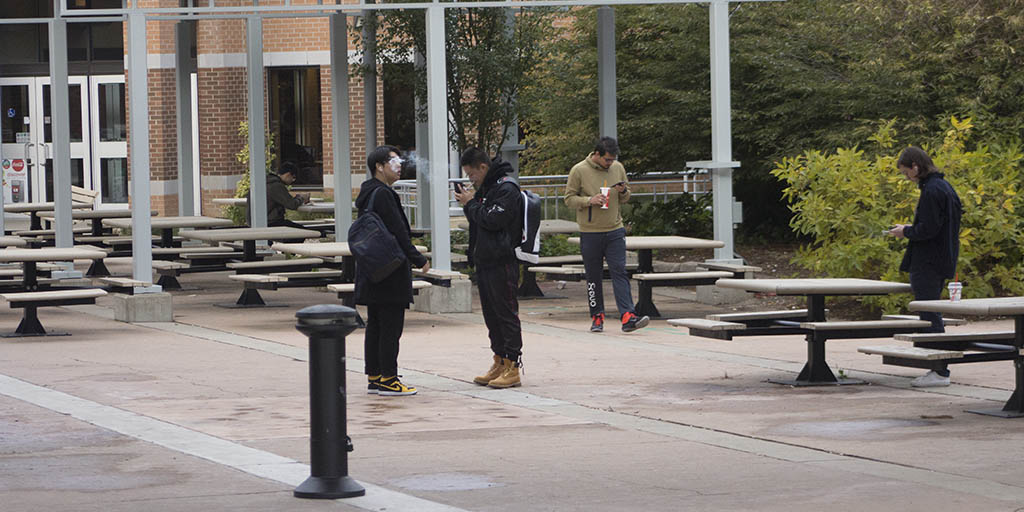Students fear impact of smoke-free policy
 CREDIT: ANGELA MCINNES
CREDIT: ANGELA MCINNESFanshawe's smoke-free policy could be challenge for those addicted to smoking cigarettes.
Fanshawe College announced last week that it will go smoke-free as of Nov. 1.
As news of the policy sinks in across campus, some students who smoke are concerned about its possible impact on their mental and physical health.
“I smoke because of stress and now that I have to leave the property I'm going to be late for classes. I feel like I'm being punished by people smoking weed,” Rick Weiland, a Fanshawe business accounting student, said.
Shawn Patrick Wilson Carrick Jr., a civil engineering student, also weighed in.
“What the school hasn't taken into account is that if someone with a serious addiction to nicotine does not smoke they can experience withdrawal,” Carrick Jr. said. “The symptoms can cause lack of focus, nausea, migraines and many other symptoms. If I do decide to smoke and have class in let's say M building and I need to go to a class in C building, I'm risking being extremely late to have a quick smoke. Both these issues can negatively impact my education.”
Suzanne Book, senior manger of Fanshawe's Counselling and Accessibility Services, acknowledged that smoking can be a coping strategy for some students as they deal with the stress of school and life — one that they may not be prepared to give up in spite of the policy.
However, Book also said that the cons of smoking will always outweigh the pros.
“That initial hit of nicotine does cause a relaxation response but longer term it actually increases anxiety and tension, because that feeling of relaxation is very temporary. [Smokers] then get into withdrawal symptoms and increased cravings and it's very cyclical that way,” Book said.
Book added that there is countless research that links smoking with increased anxiety, depression, and other forms of mental health issues.
In respect to the smoke-free policy, she said that providing education is her top priority, rather than forcing students to quit cold turkey.
“We want to help students understand the physical piece of it, looking at it if they're ready to quit or if they're just trying to manage where to smoke right now. You have to be ready to take that step. Sometimes you need a change of circumstances to decide to take that next step,” Book said.
There is a list of resources for students on Fanshawe's main Corporate Information webpage. The list includes counselling and accessibility services, the Middlesex London Health Unit, a smoker's helpline, a link to the Leave the Pack Behind program, and provincial support site for smoking cessation.
Book also said she is receptive to hearing feedback from students on what supports they would need as they adjust to the smoke-free policy. Fanshawe representatives said that the College had been working on developing a smoke-free policy for 2019. It was decided that the policy would go forward earlier than expected due to Bill 36, an Ontario legislation allowing for cannabis to be consumed in the same public areas as tobacco.
According to an online Fanshawe FAQ about the policy, there will be exemptions for the medical use of cannabis, as well as Indigenous ceremonial smudging at the First Nations Centre.
















